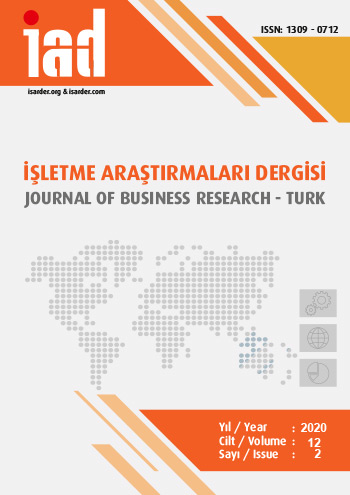(Adapting Brand Trust Scale to Turkish Culture: Validity and Reliability Study)
Keywords:
Trust, Brand Trust Scale, ReliabilityAbstract
Purpose – The purpose of this research is to adapt the “Brand Trust Scale” developed by Delgado-Ballester (2004) to the Turkish culture and to make validity and reliability analyzes. Design/methodology/approach – As the first stage, the original scale was translated into Turkish by the researchers and the Turkish form of the scale was prepared by seeking the opinions of six experts. Whether the scale has language equivalence or not was tested by correlation analysis. The construct validity of the scale was examined by using exploratory factor analysis and confirmatory factor analysis, and the reliability was examined by calculating the Cronbach α coefficient and using the test-retest method. Findings – As a result of the study, firstly, it was determined that Turkish scale has language equivalence. As a result of the exploratory factor analysis, it was determined that the measurement structure of the scale explained 79.53% of the total variance and consisted of 8 items and 2 sub-dimensions. These dimensions are named as "Reliability" and "Intention" as in the original scale. The validity of this structure was confirmed by confirmatory factor analysis. Cronbach α coefficients were calculated as 0.947 for the whole Brand Trust Scale and 0.913 and 0.911 for the sub-dimensions. As a result of test-retest application, sufficient stability coefficients were obtained for the whole scale and its sub-dimensions. Discussion – According to research’s findings, the scale was found to have high validity and reliability. As a result, it was concluded that the Brand Trust Scale is a reliable and valid scale that can be used to measure the brand trust levels of customers.
Downloads
Published
How to Cite
Issue
Section
License

This work is licensed under a Creative Commons Attribution-NoDerivatives 4.0 International License.





